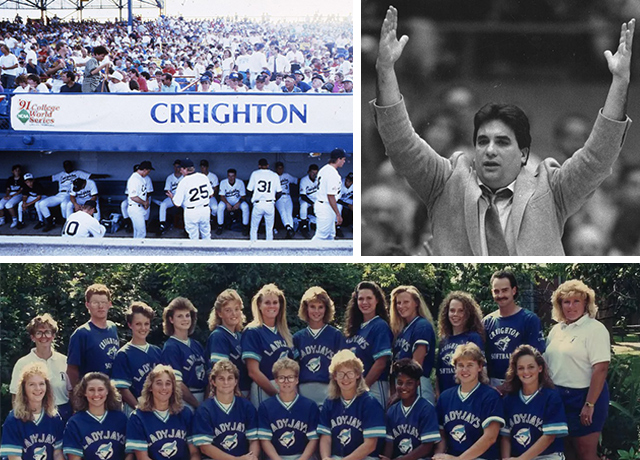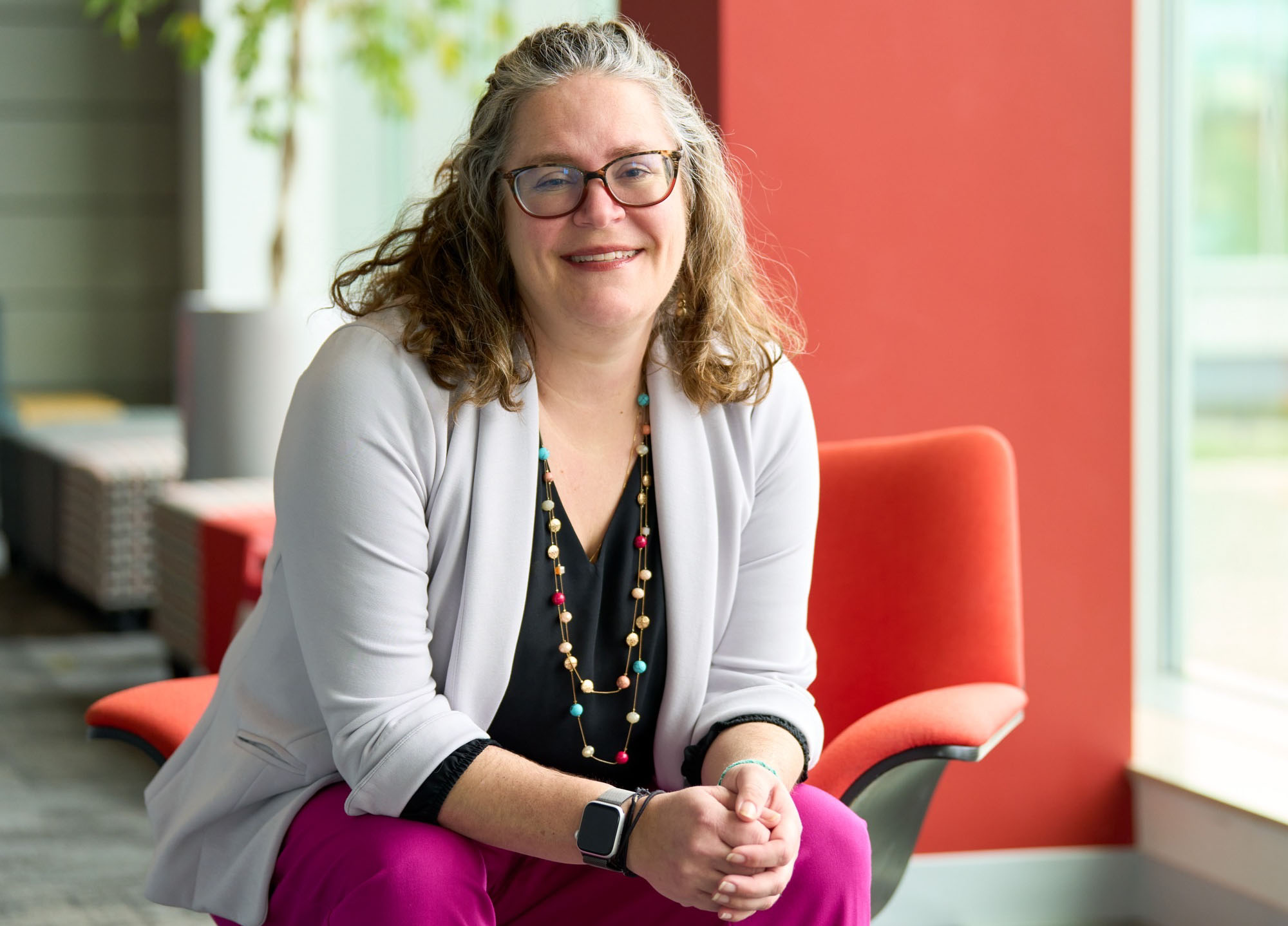Featured Testimonial About Creighton University
If my name is on an award, it’s because the team around me is strong enough to support what we’re doing.
Lisa Moody, MS’22, didn’t choose to go into teaching to win awards. You’d understand her surprise then, on a Friday morning in January, when she learned she had won a national Miliken Educators Award—considered “The Oscars of Teaching.”
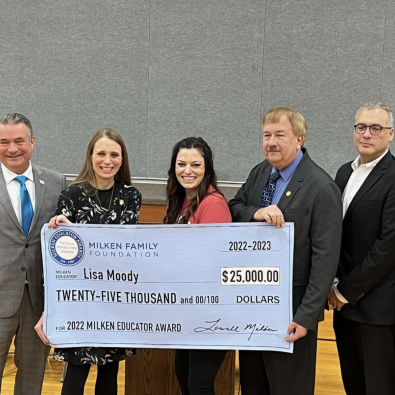
Stunned and moved, the Creighton graduate accepted the accolade in front of a cheering assembly of students, peers, and Omaha Public Schools administrators.
“If my name is on an award,” says Moody, “It’s because the team around me is strong enough to support what we’re doing. I couldn’t do my job successfully without my administration, my coworkers, and, specifically, my students’ parents.”
Moody is a special education teacher at Jefferson Elementary School in South Omaha. When her team faced staffing challenges, she got creative. She developed a service delivery model with opportunities for her special education students to integrate into the school’s general education classrooms.
The Miliken Family Foundation described it as “a new, hybrid inclusive education program.”
The program has been mutually beneficial, according to Moody. Students who would normally spend all day in the alternative curriculum program are instead getting more exposure to general education classes. Her students are paired with sixth Grade “buddies” who meet them at the door and walk with them to class and spend time with them at recess.
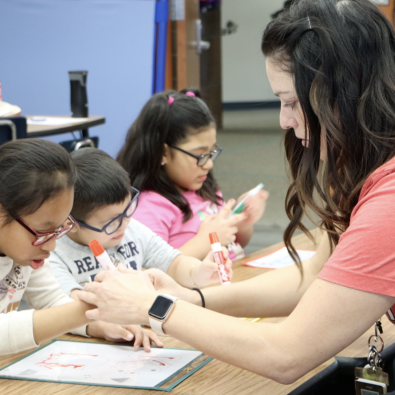
Students in the hybrid alternative curriculum program learn classroom routines and have opportunities for play-based learning. Meanwhile, the students in general education classrooms are learning how to be more welcoming, aware and inclusive of all students.
“It’s great for our general education kids. They are learning to interact with students with differences and disabilities,” says Moody. “They’re learning to help and engage with them. The empathy, the support, the guidance the general education students are learning is invaluable.”
Moody knows first-hand why being part of a school community matters. She was diagnosed with cerebral palsy as an infant and sometimes felt like an outsider in her small school.
But Moody’s parents, both educators themselves, never once made Moody feel as though she was different. The expectations for her were the same as her siblings.
Her family didn’t let cerebral palsy define Moody’s childhood. And Moody doesn’t let her students’ challenges define them.
“I watched my parents advocate for me growing up,” says Moody. “So, it was easy for me to take what I learned, what I witnessed, and apply that to helping the next generation.”
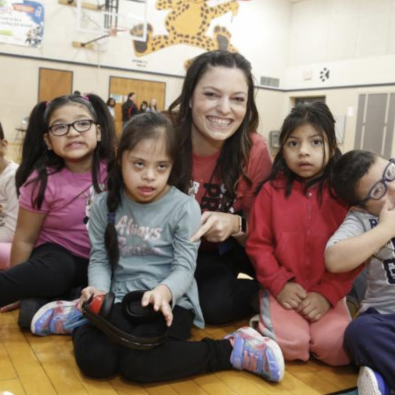
Moody’s participation in a graduate certificate program at Creighton also impacted her approach to teaching. The program provided an endorsement in early childhood education and English as a second language.
During her coursework, Moody studied the importance of play-based learning. The academic and social outcomes of children at play were a powerful motivator for her. She credits the program at Creighton for giving her many of the tools her team now uses at Jefferson Elementary School.
“A lot of kids don’t even realize they’re learning. They think they’re playing, but the skills they are picking up are crucial,” Moody says. “The turn taking. The language. Social and emotional control. They’re learning all that through play.”
Moody hopes to scale the Jefferson Elementary inclusive education program so students at other elementary schools can have the same opportunities. She envisions a time when each school in the district can incorporate elements of the program that make sense for their community.
While she has an eye on the future, Moody is always focused on the needs of her students in the present. Her award was a validation, she says, not a conclusion.
“I hope these students and their families leave Jefferson feeling they are just as much a part of this community as anyone else,” says Moody. “I hope they leave Jefferson with a sense of pride for the work they’ve put in and the relationships they’ve cultivated. I hope they know how much we care about them, and how much we want them to succeed.”
